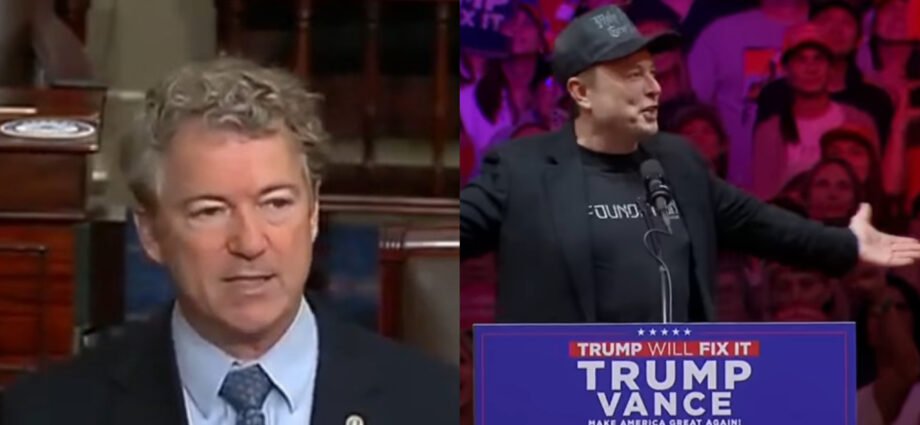In a recent post on X, Senator Rand Paul proposed an unconventional idea that has sparked considerable interest and debate: appointing Elon Musk as the Speaker of the House. Paul’s suggestion comes at a time when the political landscape is already fraught with tension over legislative actions, particularly the recent discontent with the continuing resolution passed by Congress.
The notion of Musk, a figure known more for his entrepreneurial ventures than political involvement, taking on such a pivotal role in government, is both a reflection of frustration with the current political establishment and an exploration of how non-traditional figures might disrupt the status quo.
“The Speaker of the House need not be a member of Congress . . .
Nothing would disrupt the swamp more than electing Elon Musk . . . think about it . . . nothing’s impossible. (not to mention the joy at seeing the collective establishment, aka ‘uniparty,’ lose their ever-lovin’ minds)”
The idea of an outsider like Musk stepping into a position traditionally held by seasoned politicians could be seen as a bold move to challenge the entrenched political system. Musk’s influence, particularly highlighted by his recent involvement in discussions around funding bills, has positioned him as a potential disruptor.
His business acumen and innovative approach to challenges could bring a fresh perspective to legislative processes, potentially streamlining government operations or introducing new ideas on policy and efficiency.
However, this proposition is not without its challenges and criticisms. Musk’s lack of political experience could be a significant hurdle. The role of Speaker involves not only presiding over House sessions but also navigating complex political landscapes, managing party dynamics, and ensuring the legislative agenda aligns with the majority’s goals.
Critics argue that Musk’s unpredictable public behavior, as noted in discussions about his involvement in politics and business, might undermine his effectiveness in such a position. Additionally, there is the question of whether Musk would even be interested in such a role, given his commitments to his businesses and other ventures.
Support for this idea has surfaced from various quarters, with some seeing it as a symbolic move to shake up the system. The trend of considering high-profile individuals outside traditional political circles for significant roles reflects a growing desire for change among some segments of the population and within the Republican Party itself. However, the practicality of such a move remains speculative, with many questioning how Musk would fit into the day-to-day operations of the House, a body steeped in tradition and protocol.
In conclusion, Senator Rand Paul’s suggestion to appoint Elon Musk as Speaker of the House is a creative, albeit controversial, proposal that underscores the current political climate’s demand for disruption and reform.
Whether this idea will gain traction or remain a topic for social media speculation remains to be seen. It certainly opens up a conversation about the role of outsiders in politics and the potential for radical changes in leadership roles within the government.
- Joe Biden Diagnosed with Aggressive form of Prostate Cancer - May 18, 2025
- Report: Kash Patel is Directing Secret Service to Investigate James Comey as he Removes Instagram Post and Claims he Didn’t Know What it Meant - May 15, 2025
- White House Responds to Apparent Threat to President Trump by James Comey - May 15, 2025

